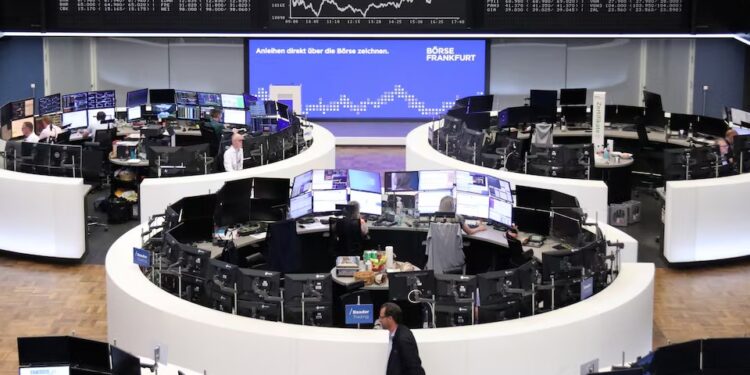European markets opened lower on Monday, reflecting investor caution as tensions escalate in the Middle East following recent US and Israeli strikes on Iranian nuclear sites. The pan-European STOXX 600 index fell by 0.3%, with sectors reacting unevenly to the unfolding geopolitical risks.
Energy stocks showed resilience, buoyed by rising oil prices amid fears of supply disruptions through the Strait of Hormuz. Oil and gas shares gained 0.7%, benefiting from renewed concerns about global energy security. Conversely, travel and leisure stocks were among the hardest hit, declining 0.8% as investors anticipate potential fallout from regional instability.
One notable mover was UK scientific instruments firm Spectris, whose shares surged by 14.6% after private equity firm Advent announced a £4.4 billion acquisition deal. This corporate development offered a rare positive catalyst amid a generally risk-averse market environment.
Looking ahead to later sessions, London’s FTSE 100 is expected to open cautiously. While energy and defence sectors may provide some support, broader market sentiment remains fragile due to geopolitical uncertainties and inflation concerns. Investors will also be digesting a range of corporate earnings reports and economic data expected throughout the week.
Across the Atlantic, US futures pointed to a subdued start for Wall Street on Monday. Contracts tied to the S&P 500, Dow Jones Industrial Average, and Nasdaq Composite all indicated modest declines as traders awaited further developments in the Middle East and key economic releases. The elevated geopolitical risk has contributed to volatility, with oil prices climbing as markets factor in possible supply interruptions.
Oil has surged amid fears that escalation in the Gulf region could disrupt shipments through the Strait of Hormuz, a vital artery for global energy trade. This has heightened inflationary concerns, potentially complicating the Federal Reserve’s monetary policy outlook. Investors remain cautious ahead of this week’s US inflation and economic data, which could influence expectations for interest rates.
Market participants are advised to monitor news flow closely as the situation remains fluid. Heightened geopolitical risk combined with economic uncertainties could prompt sharp moves in equities, commodities, and currencies. Many traders are likely to adopt a wait-and-see approach until clearer signals emerge from both policymakers and the region.
Overall, the tone for Monday’s European and US sessions is one of caution, with risk appetite subdued amid ongoing global tensions. The coming days will be critical in determining whether markets can stabilise or face further disruption from geopolitical developments.
newshub finance



Recent Comments